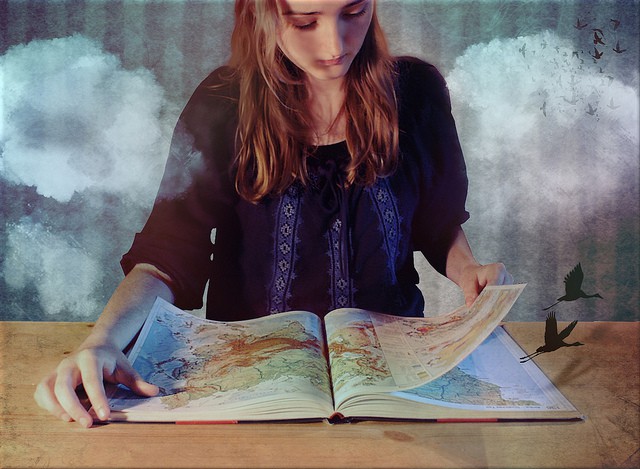Recently, I’ve discovered the song “Lost Boys” by Ruth B.: I’ve been obsessed with the song; Ruth B’s voice is beautiful; and the song can be hauntingly sad. Some sadness comes from a re-thinking of the Peter Pan story — what does it mean to be a “lost boy”? What does it mean to run far from reality, to find solace in place called Neverland?
This past year, my main ministry has been pastoral counseling for men and women struggling with addiction and homelessness. So many of these conversations dance around the subject of hope and reality, whether discussing holding onto hope or even wrestling with the apparent hopelessness of situations. In some of the hardest of those discussions for me, the people with whom I was speaking held a hope that was not based in reality: “It’ll all be better if/when… As soon as I move here everything will be fixed… As soon as this person changes, I’ll be OK…” These fantasies created a fake hope grounded usually in either running away from true problems and pain, or grounded in changing others in order to fix the problems and the pain.
Hope is beautiful. Hope offers comfort. Hope drives us forward. More — Hope is essential. Hope gets us out of bed in the morning. Hope is powerful enough to move us past pain and suffering towards healing. But, hope that is not grounded in reality can be dangerous. When I hear Ruth B’s song “Lost Boys,” I think back to so many conversations I’ve had which contain the struggle to find hope—and many that find some kind of fake hope in different Neverlands. Addressing these Neverlands in each of our lives, requires an immense amount of work—work rooted in genuine love.
In that slow work of love we can offer support. We can provide connections. Gentle conversations that spend more time listening than debunking, communicate love to the person. It perhaps brings the person closer to their shadow and struggle, but at the same time we convey to that person that they are not lost. No matter how they might feel.
And this might be the reason the song most haunts me: nobody is truly a Lost Boy. When she sings that “lost boys like me are free,” I think to all the ways that these fantasies trick us into false hope. The song begins from a place of pain. No matter how much the singer remains “always on the run from Captain Hook” as if it were a game, ultimately, she simply continues running “away from all of reality.” And yet, I do not believe that the singer is free from the pain or free from her problems. The voice remains hauntingly beautiful, laced with a bare sadness that strikes straight to the heart.
All lost boys have a choice to stop running, and those whose hearts are struck with compassion and love can see hope even for the lost. It takes the slow work of love to bring us back from our Neverlands. Somehow, we grow from the support of others and find true hope again. We find the strength to face our shadows, our Captain Hooks, our problems; we find the bravery to fly home from Neverland, to move from lost boys to truly being free.
*******
Cover Image, Childhood Dream:Finding Neverland, by Flickr User Hoffnungsschimmer, via Flickr Creative Commons, available here.


